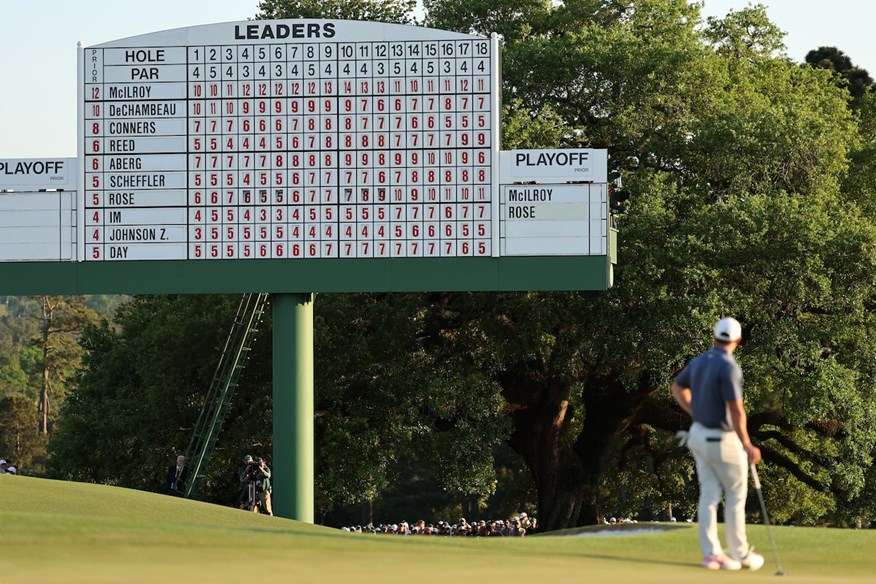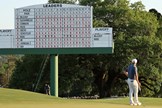Augusta National chief reveals why Masters qualification criteria was changed
Last updated:

While it’s not good news for the PGA Tour’s rank and file, Fred Ridley has explained the reasons for taking the process global…
Fred Ridley has explained why Augusta National decided to change its qualification criteria for the Masters ahead of the 2026 edition of the illustrious major.
In August, ANGC announced joint plans with The R&A to align aspects of the qualification process for the Masters and The Open.
Twenty-four of the 156 players who teed up at Royal Portrush did so thanks to the Open Qualifying Series, which took place at 11 tournaments in Australia, Canada, China, Italy, Japan, Korea, New Zealand, Scotland, South Africa, and the United States.
But while the Masters, which traditionally has a much smaller field of around 90 players, won’t be going quite as far, there will be six one-year exemptions to the champions of the following golf tournaments:
- Genesis Scottish Open
- Open de Espana
- Japan Open
- Link Hong Kong Open
- ISPS Handa Australian Open
- Investec South African Open
Chris Gotterup, who had already qualified for next year’s Masters via other routes, was the winner of this year’s Scottish Open, while Marco Penge and Naoyuki Kataoka won in Spain and Japan respectively. The other three tournaments will take place before the end of the calendar year.
And Ridley – speaking at the Asia-Pacific Amateur Championship, which also offers up a spot in both the following year’s Masters and Open – said there were a number of factors in the decision.
“International competition has always been a big part of the Masters Tournament,” he explained. “That representation internationally has grown over the years to where it’s pretty much 50/50, and maybe even a few more, international players. So, we thought it was appropriate to sort of carry on that tradition and the culture that we’ve established at the Masters.”
Players from a record 27 different countries teed up at Augusta last year.
Ridley continued: “Golf is a global game, and I think we always want to recognize that.
“We felt that not only were we living true to our values, we hope that that incentive of awarding the winners an invitation, a spot in the Masters Tournament as well as the Open Championship, would also generate additional interest in those countries.
“We are very excited about that change in our qualifications.”
Asked why these particular tournaments had been selected, Ridley said: “These are really some historical championships that have been around for quite some time and have meant a lot in their countries.”
Indeed, the South African Open was founded in 1903, the Australian Open in 1904, and the Spanish Open in 1912. Then came the Japan Open in 1927, the Hong Kong Open in 1959, and the Scottish Open in 1972.
“There are some great golfers that have come from a number of those countries, and we just felt that those six championships were appropriate to award invitations to the Masters,” Ridley concluded.
Why it’s bad news for the PGA Tour’s rank and file
As is so often the case, something’s got to give. In this case, it’s the PGA Tour’s FedEx Cup Fall Series. From now on, the winners of the seven events between September’s Procore Championship to November’s RSM Classic will no longer receive an invite.
“The Masters Tournament has long recognized the significance of having international representation among its invitees,” Ridley said when the news was announced in August. “We, along with The R&A, have a shared commitment to the global game and are proud to work together.
“The announcement strengthens our organizations’ collective vision of rewarding top talent around the world who rise to the top of historic national open championships. We hope this formal recognition shines a bright light on these players and the events they will represent at the Masters and The Open, beginning next year.”
Mark Darbon, The R&A’s chief executive, added: “We take great pride in the range of qualification routes we offer to players around the world through the Open Qualifying Series.
“We share the same goal as Augusta National to offer places in both The Open and the Masters to players competing in national opens and by doing so to help to showcase and strengthen our sport in those regions.
“This creates an outstanding opportunity for players in all parts of the world to qualify and we firmly believe this will continue to enrich the quality of the fields in both major championships.”
The Open Qualifying Series for the 154th playing for the Claret Jug will offer places at 15 events in 13 countries.
